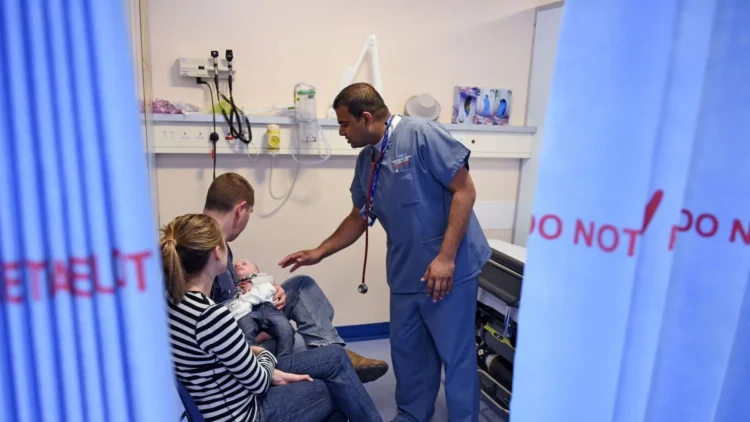By Charlotte Webster-
Doctors who raised concerns about Letby’s conduct and the increased mortality rates among infants should have taken more proactive actions, including reporting their suspicions to the police.
The case of Lucy Letby, the evil nurse convicted for killing several infants at a UK hospital, has sent shockwaves through the medical community and the public at large.
Several doctors who worked with Letby in the neonatal unit reportedly raised concerns about the unusually high mortality rates among the infants under her care. The increased number of deaths raised red flags, prompting these doctors to question whether there was any foul play involved. T
Their complaints fell on deaf ears, but critics say the doctors had an ethical responsibility to take proactive action in addressing the complaints.
Doctors, as medical professionals, have a duty not only to provide medical care but also to advocate for the well-being of their patients. When they encounter situations that raise suspicions of wrongdoing or malpractice, they are faced with a moral and ethical dilemma.
The General Medical Council’s (GMC) guidelines emphasize the importance of doctors raising concerns if they believe patients’ safety is at risk. In cases involving potential criminal activities, this responsibility extends to reporting such concerns to the appropriate authorities, including the police.
While hospital protocols for raising concerns within the institution are important, allegations involving criminal intent transcend internal procedures. Advocates for proactive reporting argue that the potential risks to patients demand immediate action, especially if criminal activity is suspected.
However, Stephen Goodchild a nurse for 18 years who has worked in 37 different wards- a vital member of The Eye Of Media’s thinktank, said: ” it is very difficult to expect doctors to do more than report suspicions of malpractise to senior management.
‘One of the challenges doctors may face when considering reporting concerns to the police is the lack of concrete evidence. Medical cases are complex, and conclusions must be drawn based on a comprehensive examination of medical records, expert opinions, and legal considerations. Reporting concerns without sufficient evidence can be challenging, as it risks tarnishing a colleague’s reputation based solely on suspicions.
‘Complaints about other doctors are often perceived to be bullying, because there is a bit of a bullying culture in the Nhs. Senior management do not want to believe that one of their nurses who may be calmly spoken and with whom they drink tea, is a serial murderer. They would rather believe there may be some jealousy or bullying going on.
‘The problem with the Nhs is that many times promotion is based on experience, and people are often moved along and promoted to even more senior positions with the same level of incompetence
‘The Nhs always says it encourages whistleblowing, when in actual fact it does not
Hospital Protocols and Reporting Mechanisms
Hospitals typically have protocols in place for raising concerns and reporting potential issues within the institution. These protocols are designed to ensure patient safety and address internal matters efficiently.
However, when concerns involve potential criminal activities, experts argue that the responsibility transcends hospital policies and necessitates engagement with law enforcement agencies.
Critics believe lack of adequate evidence should not prevent suspicious doctors from involving their bosses, where they feel no action is being taken to address serious problems.




